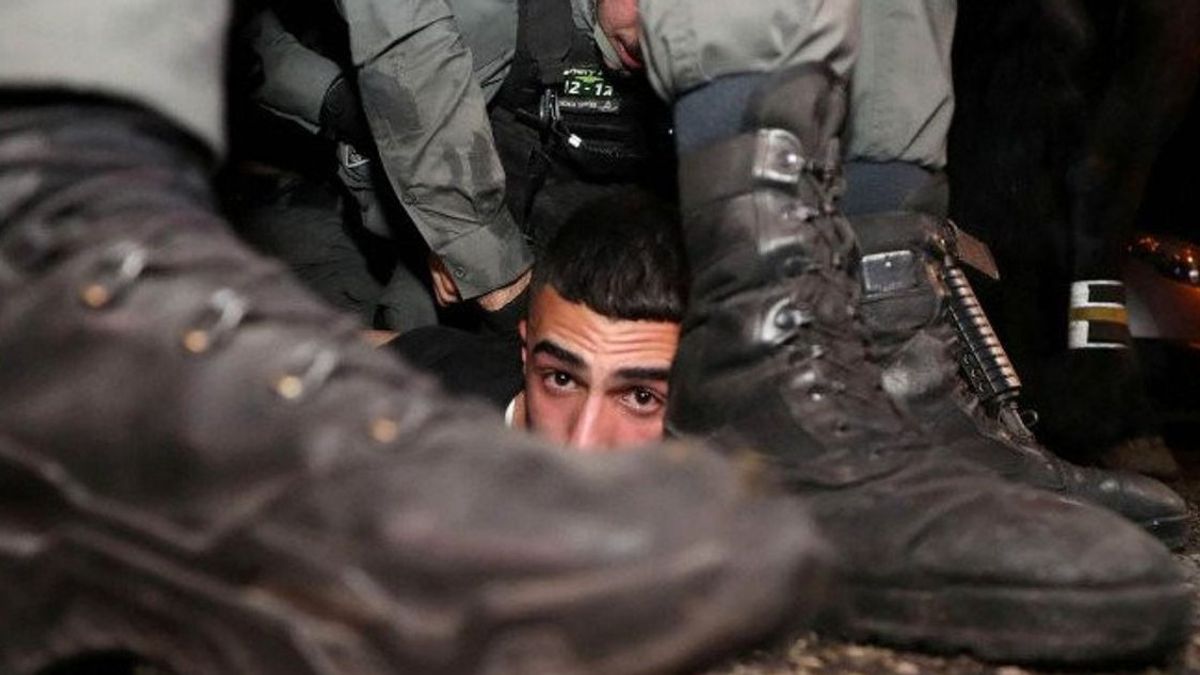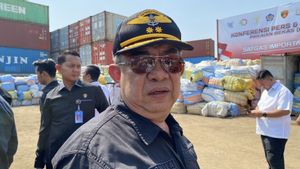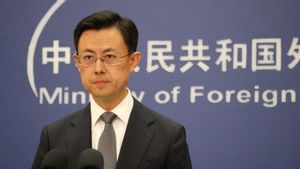JAKARTA - The Palestinian Authority and Israel have officially agreed to a ceasefire after eleven days of fighting that killed hundreds of people. The international community responded to this decision, including Indonesia, which immediately pressured Israel to stop the aggression. After the truce, what's next?
Since the fighting began on May 10, health officials in Gaza have recorded a death toll of 232. Of those, 65 were children. Meanwhile, another 1,900 people were injured in Israeli airstrikes.
Israel says it has killed at least 160 fighters in Gaza. Regarding the casualties on his part, Israel said 12 people were killed and hundreds more were treated for injuries from rocket attacks.
Israel announced the ceasefire through the office of Prime Minister Benjamin Netanyahu, who said the country's security cabinet unanimously voted in favor of the ceasefire. "Reciprocal and unconditional," reads the office's statement, responding to Egypt's proposal to act as a mediator.
After the truce, what?
Israel, on that occasion, said the ceasefire would not include the withdrawal of troops from Jerusalem, as the Hamas Group requested. On the Palestinian side, two militant groups, Palestinian Islamic Jihad (PIJ) and Hamas declared the ceasefire into effect starting Friday at 2 a.m. local time.
Hamas said the ceasefire would benefit the two warring sides and simultaneously. "The Palestinian resistance will abide by this agreement as long as the Israeli side does the same," said Taher Al-Nono, media adviser to Hamas leader Ismail Haniyeh.
Meanwhile, Hamas spokesman Abu Ubaida threatened to fire rockets that would reach the rest of Israel if the country violated the ceasefire. Abu Ubaida said he did not want any more attacks on Gaza. "With God's help, we can humiliate the enemy, his fragile entity and his savage army," he said.
Separately, Egyptian President Abdel Fattah al-Sisi has ordered two security delegations to Israel and the Palestinian Territories to work to enforce the ceasefire. Al-Sisi's statement was reported by Egyptian state television. On Twitter, al-Sisi also thanked U.S. President Joe Biden on Twitter.
The international community, including the U.S. and Indonesia, responded directly to the truce. Biden praised the truce and said it would provide reconstruction assistance to Gaza. Biden said aid would be provided in partnership with the Palestinian authority, not Hamas, which the U.S. calls a terrorist organization.

President Joe Biden (Source: Wikimedia Commons/Gage Skidmore)
"We remain committed to working with the United Nations (UN) and other international stakeholders to provide rapid humanitarian assistance and to gather international support for the people in Gaza and in gaza reconstruction efforts," President Joe Biden told Reuters on Friday, May 21.
Meanwhile, Indonesia, through a statement from Foreign Minister Retno Marsudi affirmed support for Palestine. Indonesia, Retno said, has been and will continue to use international forums to rally support for the Palestinians. Those forums include the Forum of the Organization of World Islamic Cooperation (OIC) and the United Nations General Assembly.

In a virtual press statement after attending the United Nations General Assembly (UN) session in New York, UNITED STATES, Thursday, May 20, Retno also reiterated Indonesia's stance on seeing what is happening between Israel and the Palestinians as an asymmetrical conflict. Israel, he said, is an occupier who continues to oppress the Palestinians.
"I emphasize, colonization in the Israeli-Palestinian conflict is the main issue. Once again I convey that the main issue is colonization. The international community owes it to the Palestinian people, which is a palestinian nation's continued independence, to coexist and be equal to all of us," Retno.
What is Indonesia's attitude?Retno also pushed for a ceasefire this time as momentum for Israel to halt the occupation of Palestine. Indonesia will take a role in fighting for it. Retno also called on the international community to move towards a common effort, as Israeli aggression he sees as a gross violation of international law.
Retno urged the United Nations and the international community to do a number of things to prevent a future recurrence of Israeli brutality. One way is to ensure an international presence in Al-Quds, Jerusalem to monitor and ensure the safety of palestinians in the occupied territories.

The international presence also aims to protect Al-Haram Al-Sharif's status as the holy site of three religions. The second step that Indonesia calls for is to ensure access to humanitarian aid and the protection of civilians.
The General Assembly, the United Nations and other U.N. agencies need to step up efforts to provide humanitarian assistance to affected Palestinians. "The U.N. High School should urge Israel to open up and allow access to humanitarian aid deliveries, including in Gaza that has been besieged for more than 13 years," Retno said.
What can Indonesia do?In addition to encouraging international involvement in this issue, Indonesia can also take a number of other concrete steps. Professor of International Law, Faculty of Law, University of Indonesia (UI), Hikmahanto Juwana said Indonesia can be a mediator.
"Indonesia called for a ceasefire to be followed by the status quo before yesterday's conflict, in which Israel should not annex Palestinian land. Indonesia must convey that annexation by Israel is one of the main reasons for the armed conflict," Hikmahanto told VOI on Friday, May 21.
As a good mediator in this time of peace, Indonesia should be able to corner with the factions within Palestine itself. We know there are groups of Palestinian independence struggles that have similar but unequal ideals.

Hamas, for example, wants independence achieved altogether without Israel being on Palestinian soil. Meanwhile, another group, Fatah wants an independent Palestine in a side-by-side with the State of Israel.
"Indonesia can only facilitate the Palestinian desire for independence, but the decision is in the hands of the Palestinian people through its political system," Hikmahanto said.
If completed at that level, Indonesia should facilitate that how the OIC one votes in the palestinian people's choice. The OIC's voice should not be split, he said. The next mission, Indonesia should be able to convince the international community, especially the U.S. to support the independence will of the Palestinian people.
*Read more information about ISRAEL-PALESTINE or read other interesting writings from Ahmad Fauzi Iyabu and Yudhistira Mahabharata.
Other BERNAS
The English, Chinese, Japanese, Arabic, and French versions are automatically generated by the AI. So there may still be inaccuracies in translating, please always see Indonesian as our main language. (system supported by DigitalSiber.id)













